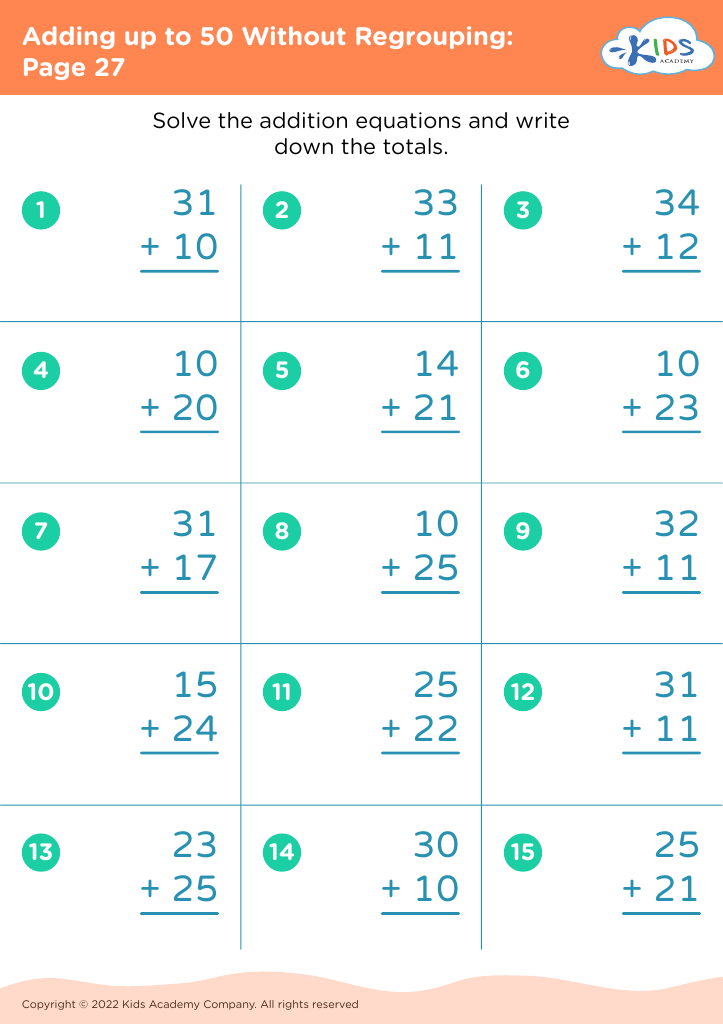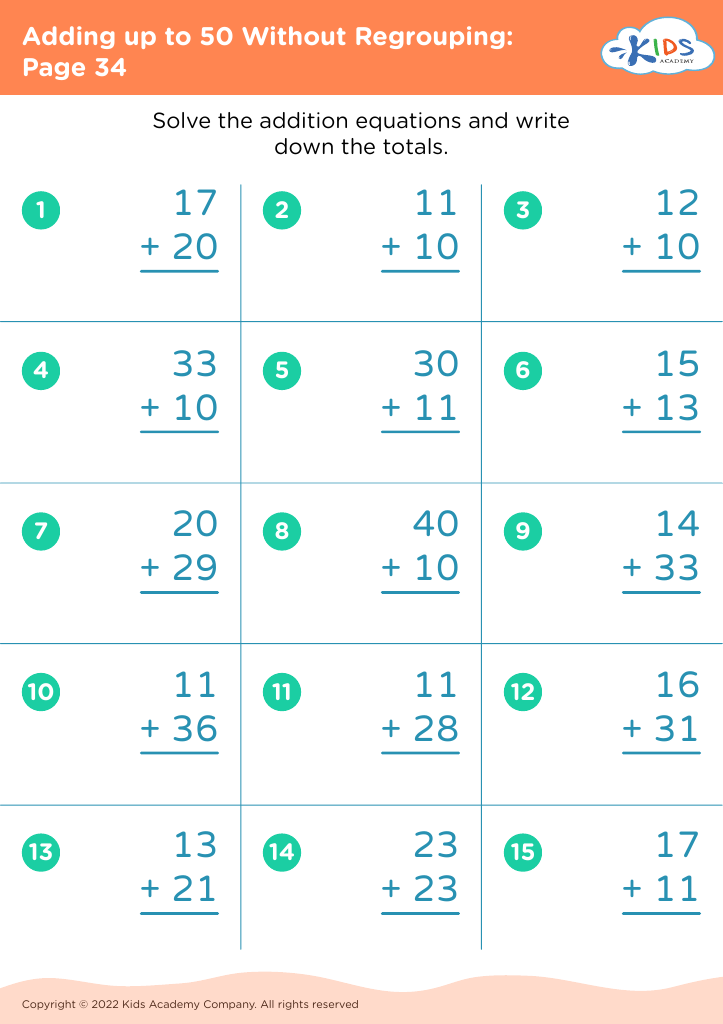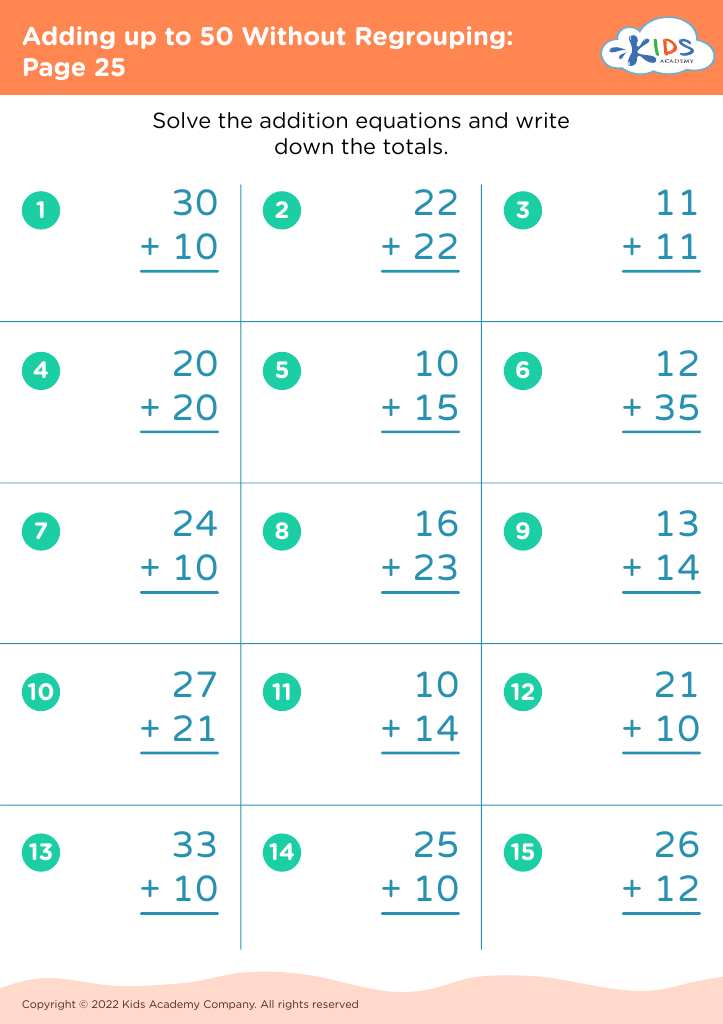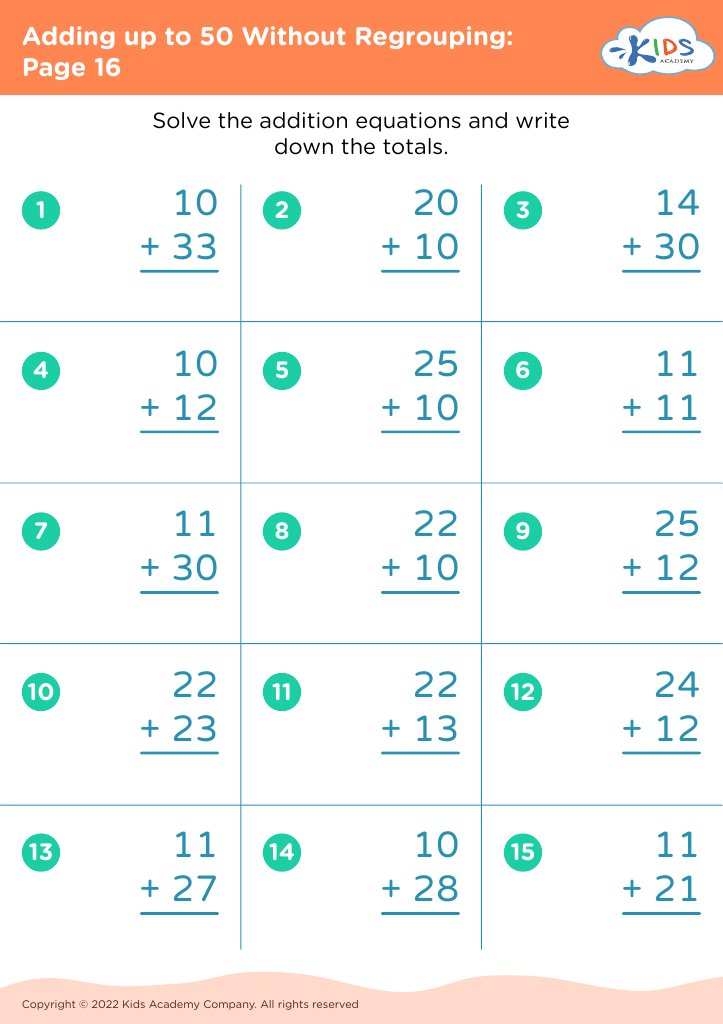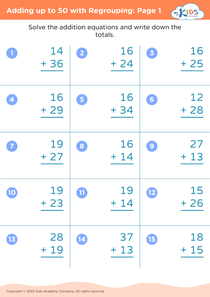Comparing Fractions Adding up to 50 Without Regrouping Worksheets for Ages 4-8
7 filtered results
-
From - To
Enhance your child’s understanding of fractions with our "Comparing Fractions Adding up to 50 Without Regrouping" worksheets designed for ages 4-8. These interactive worksheets are crafted to help young learners compare and comprehend fractions intuitively. With colorful graphics and engaging problems, kids will practice comparing fractions in a fun, educational way. Aligned with core math standards, our resources ensure that children develop foundational math skills while staying engaged. Perfect for classroom activities or additional practice at home. Visit us for high-quality printable worksheets to make learning fractions easy and enjoyable for your little ones.
Parents and teachers should care about comparing fractions and adding up to 50 without regrouping for children aged 4-8 because these foundational skills are critical for future mathematical success. At this young age, children are developing their number sense, an essential building block for all subsequent math learning.
First, understanding fractions introduces them to parts of a whole, a concept they will encounter repeatedly. By comparing fractions, children learn about the relative size and the relationship between different quantities, fostering critical thinking and analytical skills.
Second, practicing addition up to 50 without regrouping builds their confidence and fluency with numbers. This prepares them for more complex arithmetic operations as they progress through their education. Adding without regrouping focuses on basic, straightforward problems that reinforce understanding of number combinations and sums, enabling children to master simple calculations without the added complexity of carrying over values.
Consolidating these skills at an early stage ensures that children develop a robust mathematical foundation, setting the stage for more advanced concepts and problem-solving abilities. Parents' and teachers' emphasis on these skills thus directly contributes to children's academic success and confidence in mathematics.
